Teacher retention is one of the biggest concerns for district leaders across the country. Adequately understanding teacher needs and well-being is a powerful first step in building a supportive school climate where teachers want to stay.
A teacher working conditions survey can identify and address challenges affecting teachers in your district. Research shows a strong link between teachers' working conditions and job performance. By improving teachers’ work environment, school leaders can not only enhance teacher well-being, but also directly impact student outcomes.
This resource will provide district leaders with effective survey questions and best practices for assessing teacher working conditions to build a stronger school community.
Table of Contents:
What Is a Teacher Working Conditions Survey?
Developing Effective Teacher Survey Questions
5 Best Practices for Conducting a Teacher Working Conditions Survey
How to Use Teacher Working Conditions Survey Data
Gather Educator Feedback on Culture and Climate with Panorama
What Is a Teacher Working Conditions Survey?
A teacher working conditions survey is a tool used to gather information from educators about their work environment, challenges, and support systems within their schools. The survey typically addresses aspects of teaching conditions such as:
- School leadership and support
- School resources
- Professional learning
- Collaboration with colleagues
- Well-being and belonging
- Student behavior
- Staff-family relationships
The results of these surveys help schools, districts, and policymakers understand the challenges teachers face and inform decisions around new initiatives.
Developing Effective Teacher Survey Questions
Ensure the survey questions you use are clear and relevant to gather the most accurate and useful data. Effective questions reduce misunderstandings and ambiguity so they can be used to directly inform school improvements and student outcomes.
Sample Teacher Survey Questions
- How connected do you feel to other adults at your school?
- At your school, how valuable are the available professional development opportunities?
- How urgently does your school’s technology need to be updated?
- How accurate is your school’s evaluation system at recognizing good teachers?
- How useful do you find the feedback you receive on your teaching?
- How knowledgeable are your school leaders about what is going on in teachers’ classrooms?
- When you face challenges at work, how supportive are your school leaders?
- During the past week, how often did you feel engaged at work?
- How well does your teacher mentor support your development as a teacher?
- How clear are the expectations for your role as a teacher?
- How much does your school value teacher collaboration?
- If you could change anything about working at your school, what would you change?
Download Panorama's Open Source Teacher Survey
5 Best Practices for Conducting a Teacher Working Conditions Survey
1. Ensure anonymity and confidentiality
Teachers must feel comfortable sharing their true experiences and opinions without fear of repercussions. Schools should clearly communicate how the data will be used and emphasize that individual responses cannot be traced back to participants.
2. Plan the timing and frequency of surveys
Avoid administering surveys during particularly stressful times when response rates may be low, like the start or end of the school year. Be sure to conduct surveys regularly to measure trends, but not so often that they become a burden. Consider administering surveys once or twice a year.
3. Encourage honest and constructive feedback
Teachers need to feel that their feedback will lead to real changes and not be dismissed. Leadership can build this trust by sharing survey results with staff and demonstrating how past feedback has led to improvements. Provide open-ended response options to give teachers space to explain their concerns in detail.
4. Provide clear instructions and context for the survey
Teachers should understand the purpose of the survey and how their answers will be used. Provide context for specific questions, particularly those related to policy or school leadership, to eliminate any confusion or concerns.
5. Use a mix of quantitative and qualitative questions
A well-designed survey should include a combination of quantitative (e.g., rating scales) and qualitative (e.g., open-ended) questions. Quantitative questions allow for easy data analysis and comparison, while qualitative questions give teachers the opportunity to elaborate on specific issues and provide more nuanced, in-depth perspectives.
How to Use Teacher Working Conditions Survey Data
Follow these steps to analyze and respond to survey results to begin putting solutions into action.
1. Analyze survey data
Make sense of survey results with a data analytics platform to more easily interpret, organize, and visualize results. Look for common themes, ideas, or concerns in qualitative data through careful reading and categorization.
2. Look for key trends & areas of concern
Reporting tools should make it easier for district leaders to identify trends such as concerns with teacher evaluation or professional development. Be sure to get the bigger picture by cross-referencing data across different departments or grade levels.
3. Share survey results with stakeholders
Sharing results openly fosters trust and shows that the feedback is valued. Present key findings and takeaways to school administrators, district leaders, teachers, and even families if appropriate. Be sure to maintain respondents’ confidentiality and share the data in a way that is easy to understand.
4. Develop action plans based on survey feedback
Collaborate with stakeholders to develop an action plan that addresses the key issues identified in the survey. This plan should include specific, measurable goals, timelines for implementation, and assigned responsibilities. Prioritize actions that will have the greatest impact on improving working conditions.
5. Implement data-based changes and improvements
Now it’s time to put the plan into action! Use the information gleaned from the survey to make data-based decisions to impact teacher working conditions. Implementation may involve policy revisions, resource allocation, or new initiatives designed to address the concerns raised in the survey.
6. Monitor and evaluate the impact of changes
Continuous monitoring ensures that improvements are sustained and that new challenges can be addressed promptly. Follow-up surveys, focus groups, or regular check-ins with staff can help assess whether the interventions have been successful or if additional adjustments are needed.
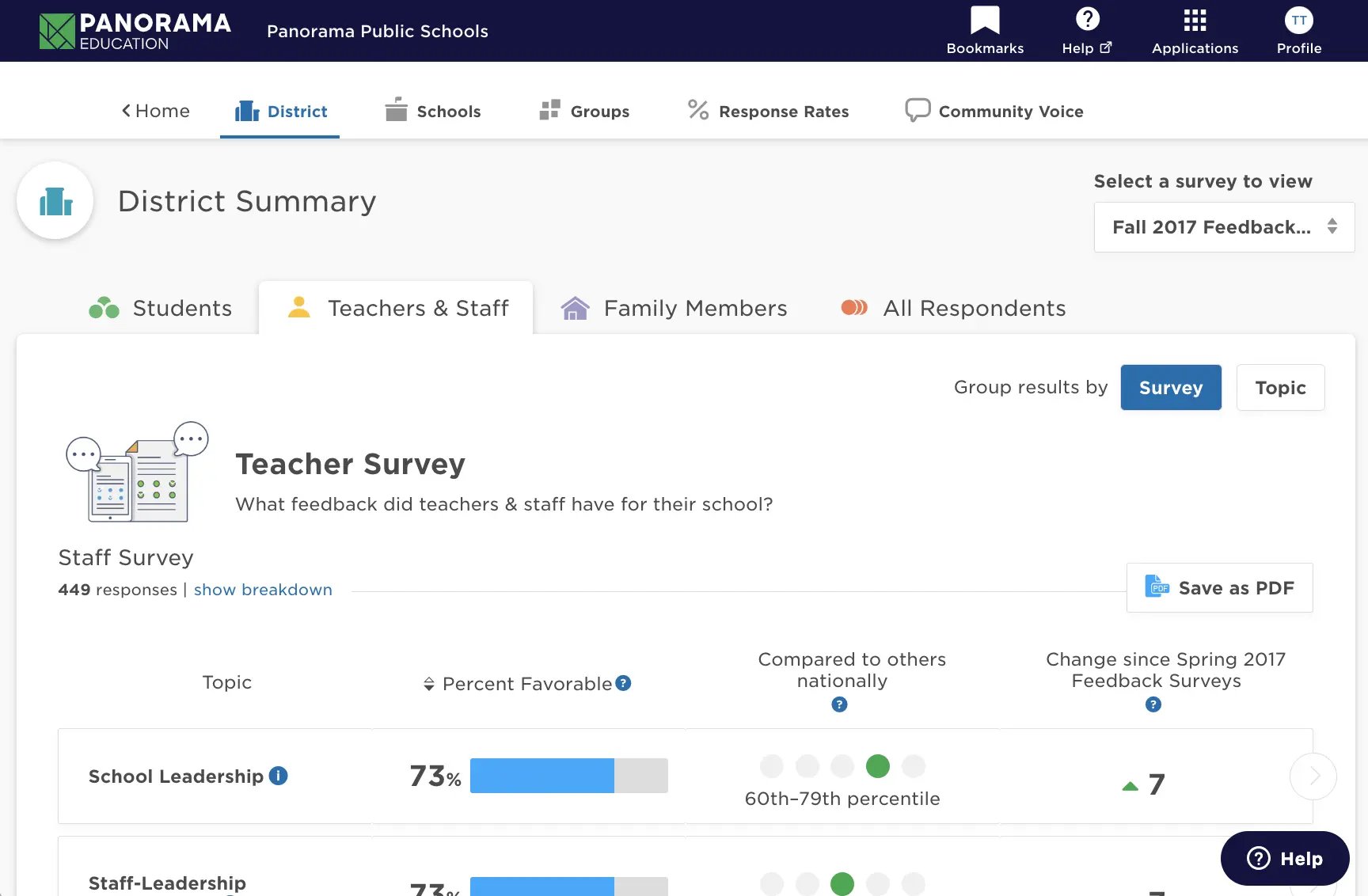
Panorama's Teacher and Staff Survey (demo data displayed)
Gather Educator Feedback on Culture and Climate with Panorama
The Panorama Teacher and Staff Survey gives school and district leaders the tools to listen to and address educators' professional and interpersonal needs. The survey is designed to spark productive conversations between teachers and school leaders about well-being, professional learning, cultural competency, school leadership, school climate, and other key topics.
Panorama is proud to partner with Colorado and Kentucky for their state-wide educator working conditions surveys, Teaching & Learning Conditions Colorado and Impact Kentucky. These programs are a model for other states and districts working to build the positive climate and working conditions educators deserve.
Jenny Watson, assistant superintendent for learning support services at Boone County Schools (KY), shares how her district partners with Panorama to support a positive school climate for educators and students.



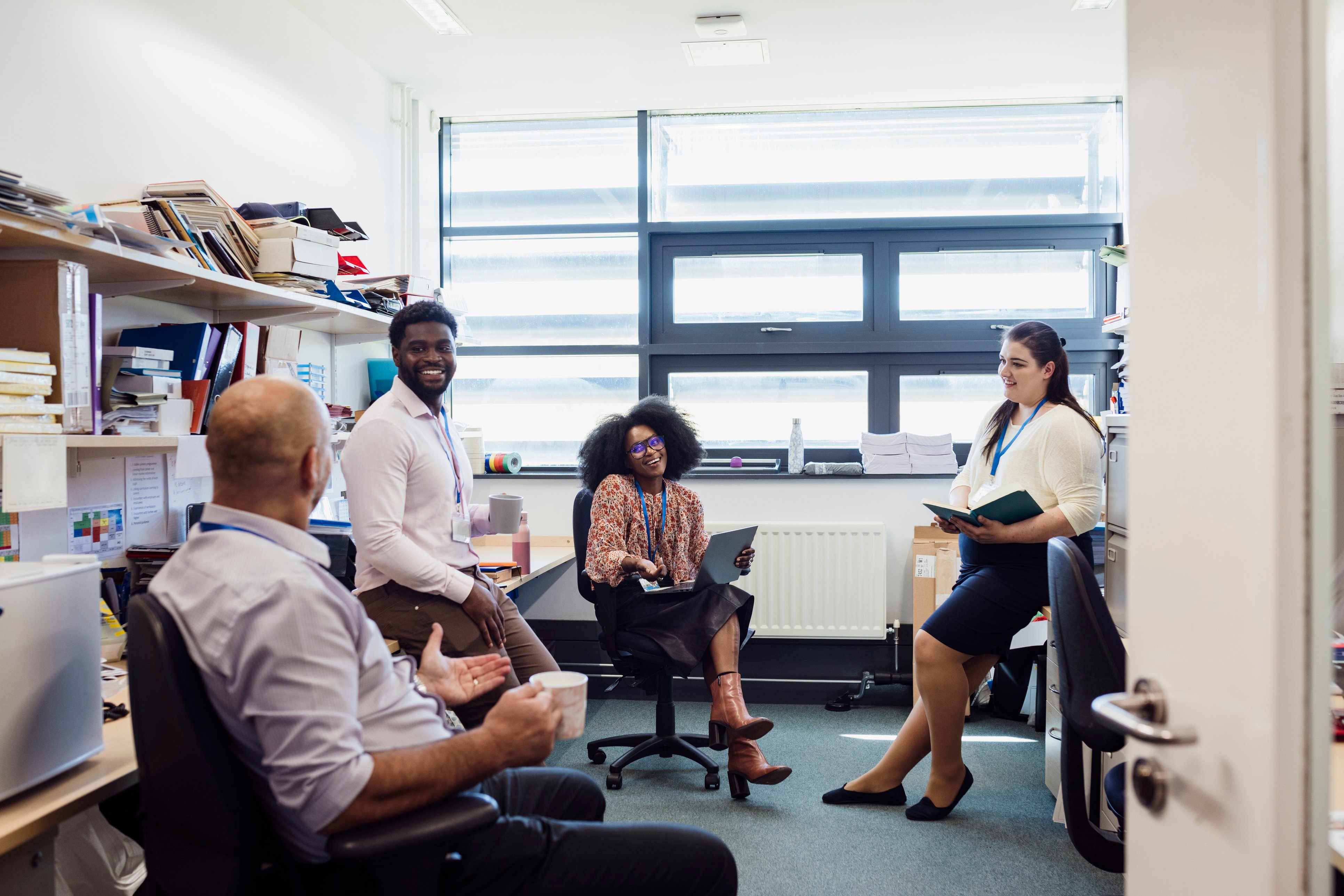
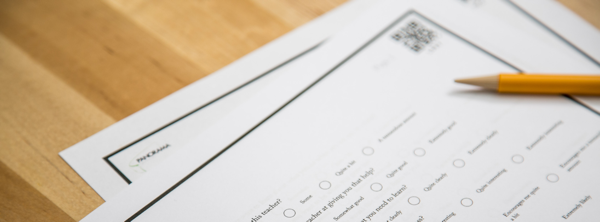
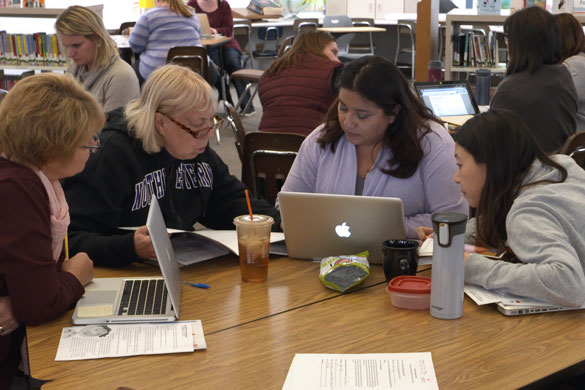
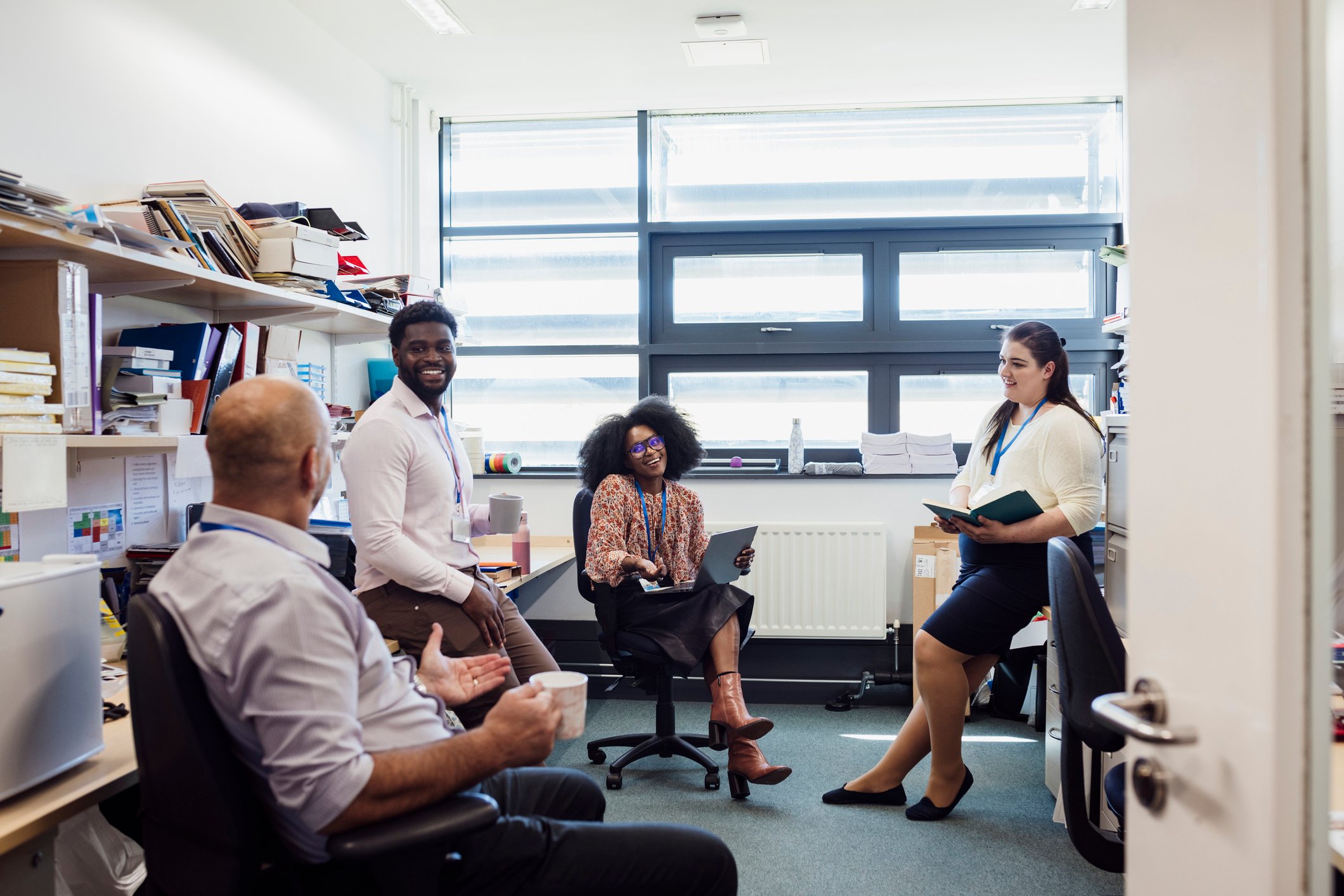
%20(1).webp?width=451&height=557&name=Panorama%20Teacher%20and%20Staff%20Survey%20(1)%20(1).webp)